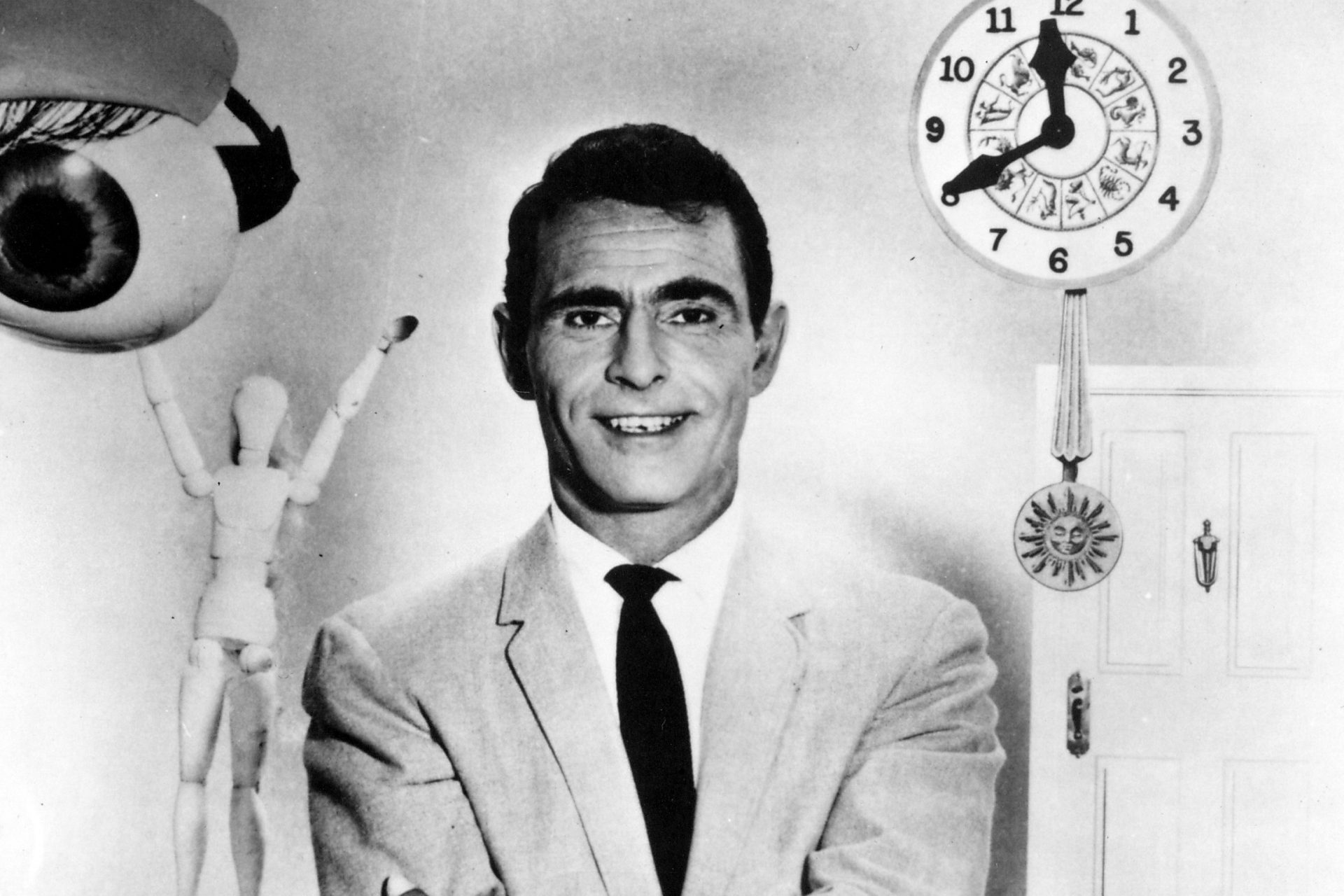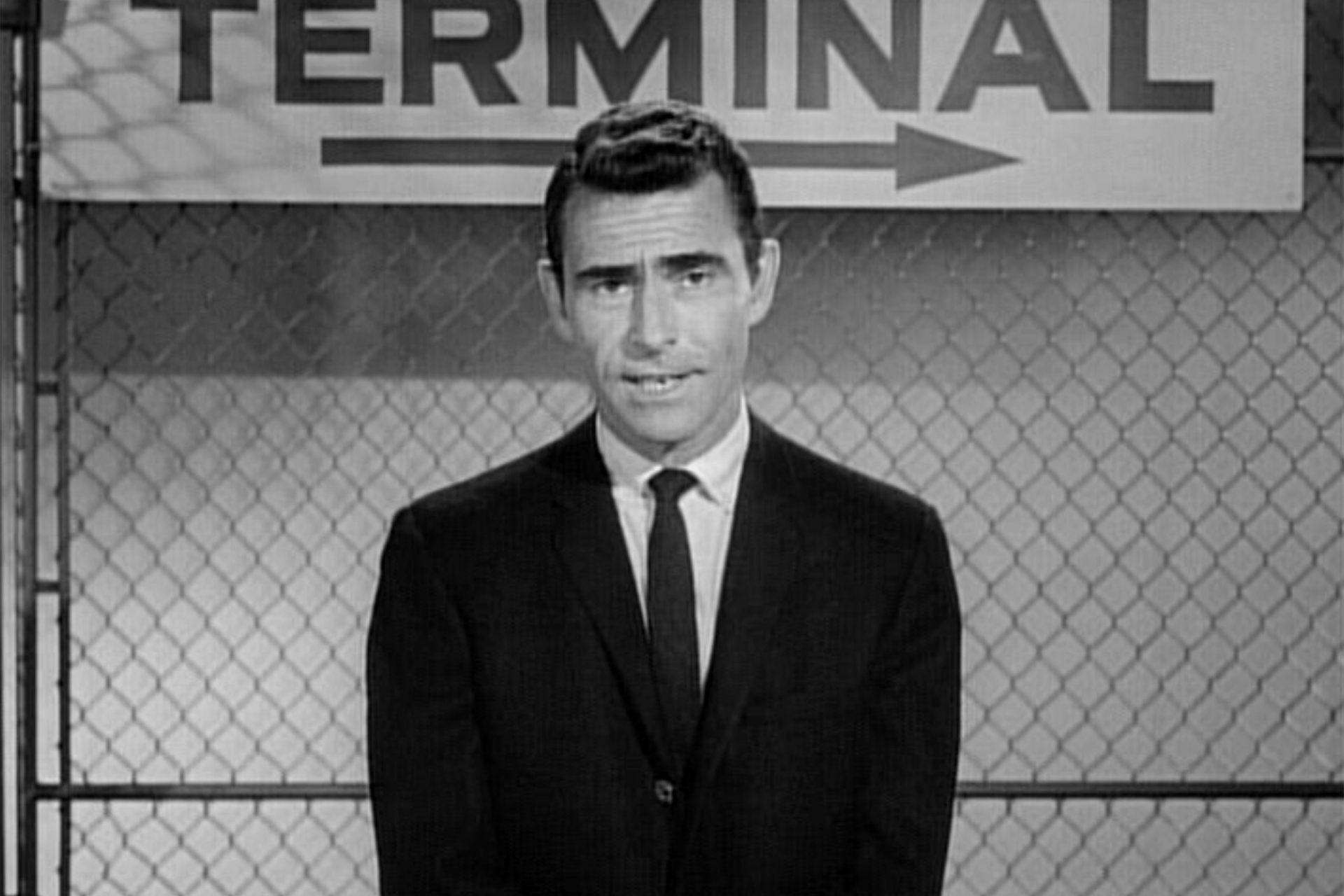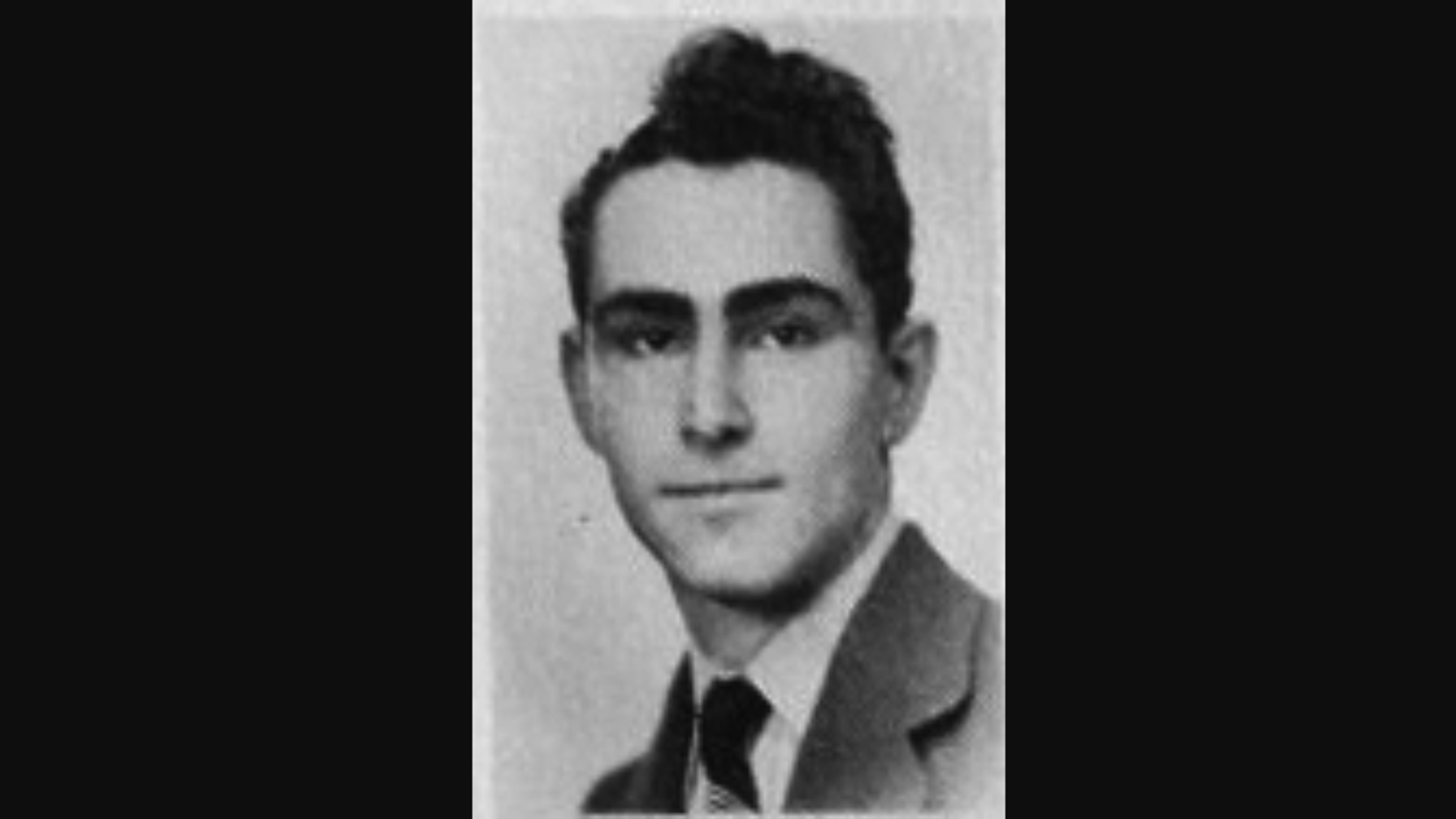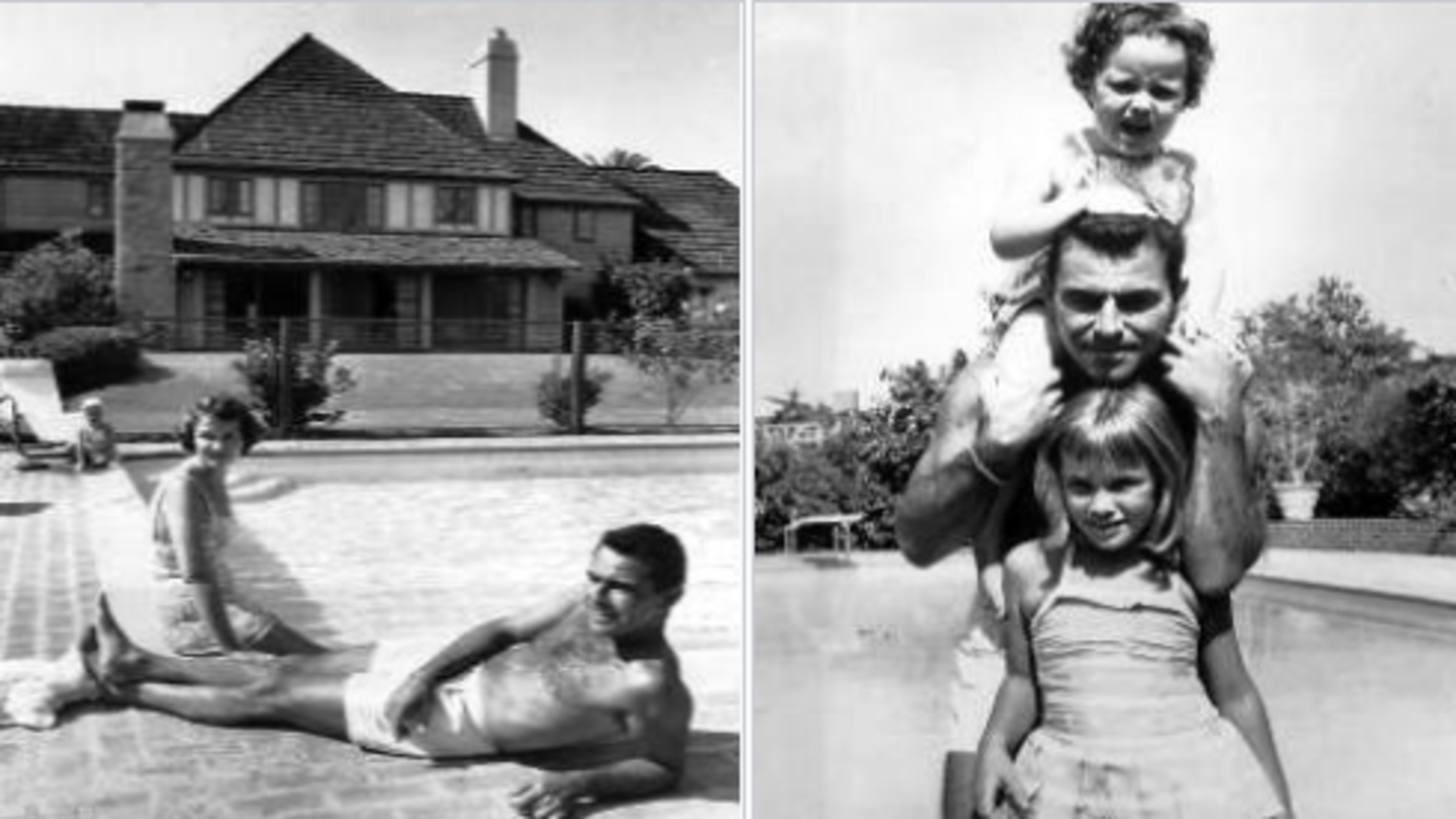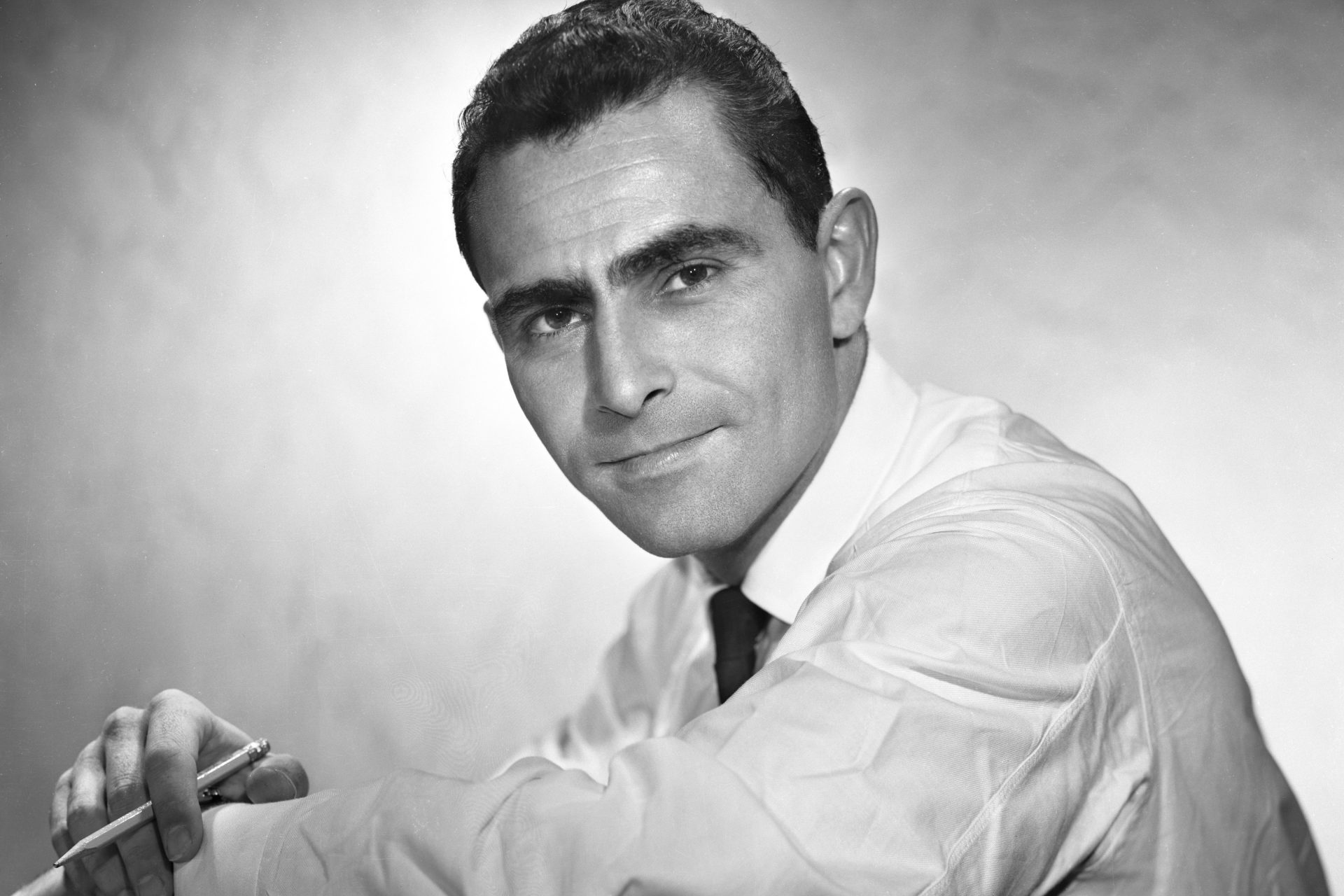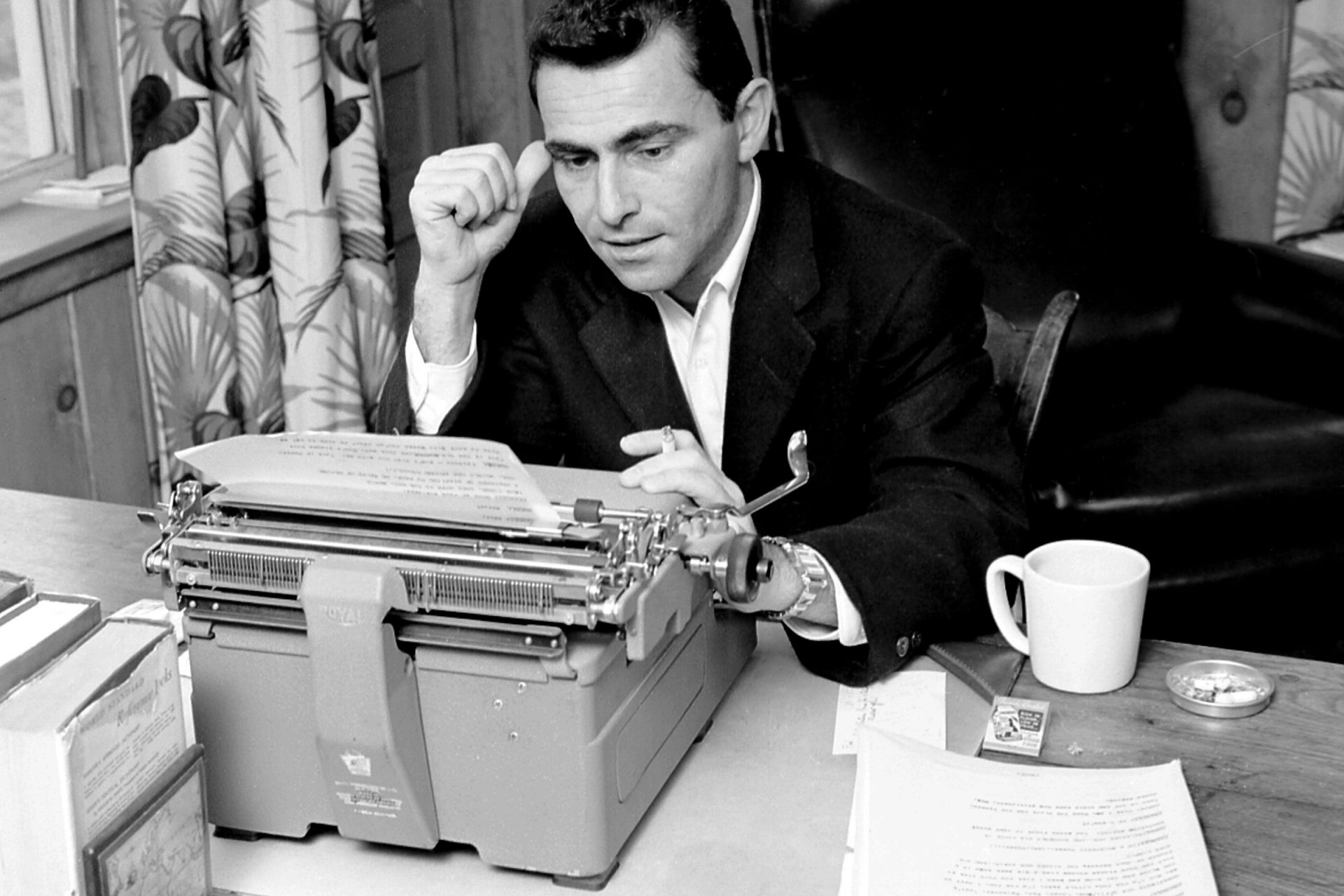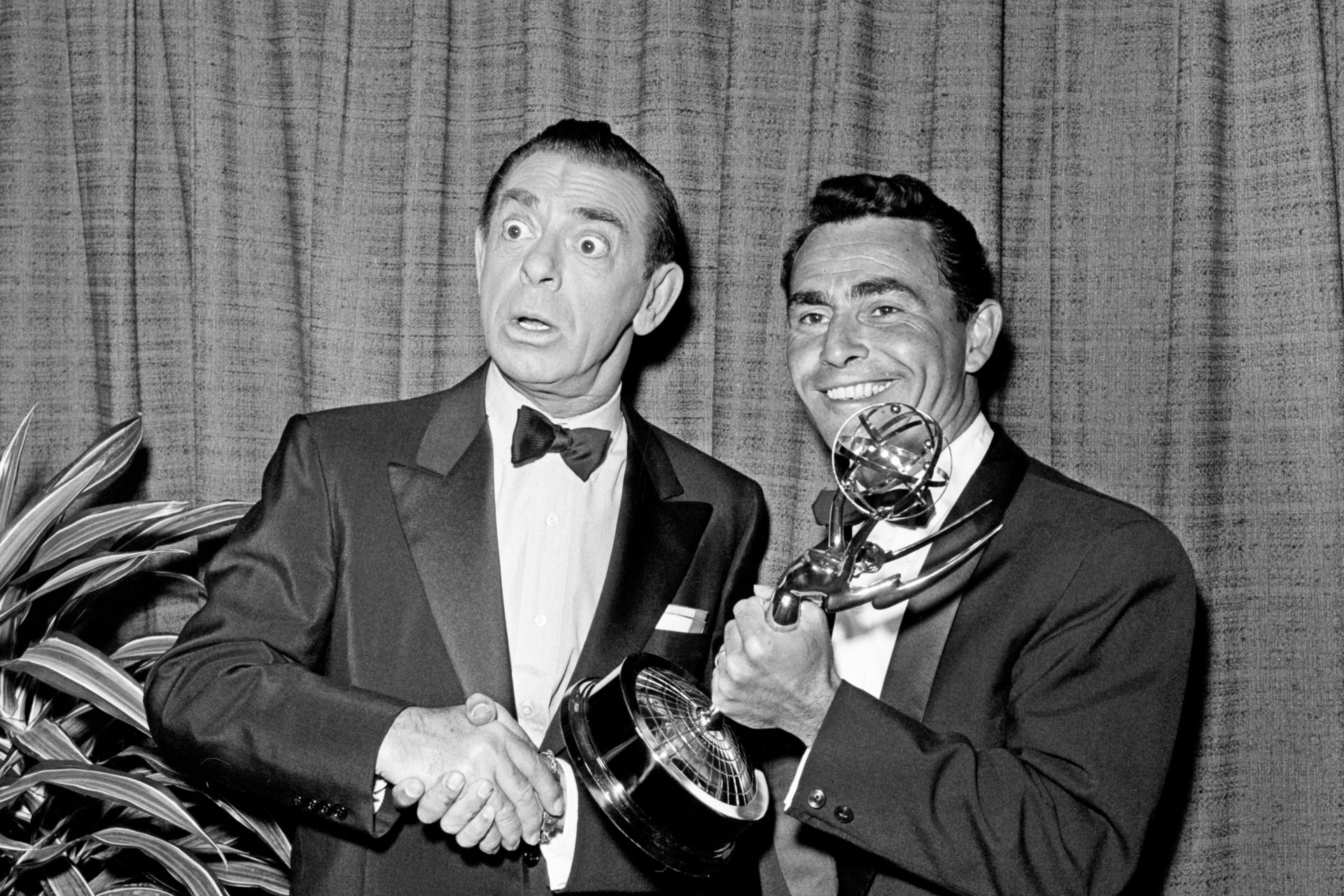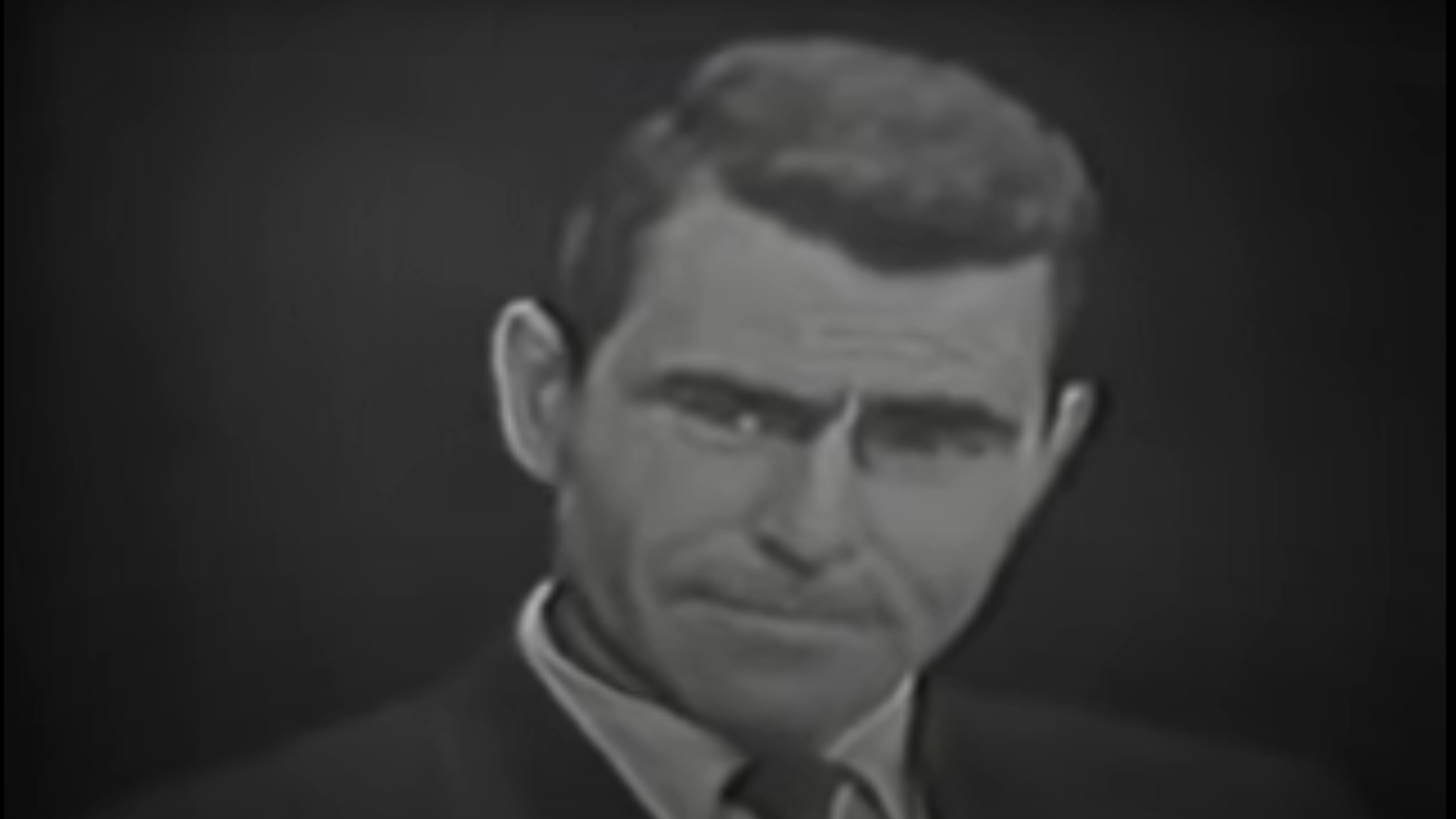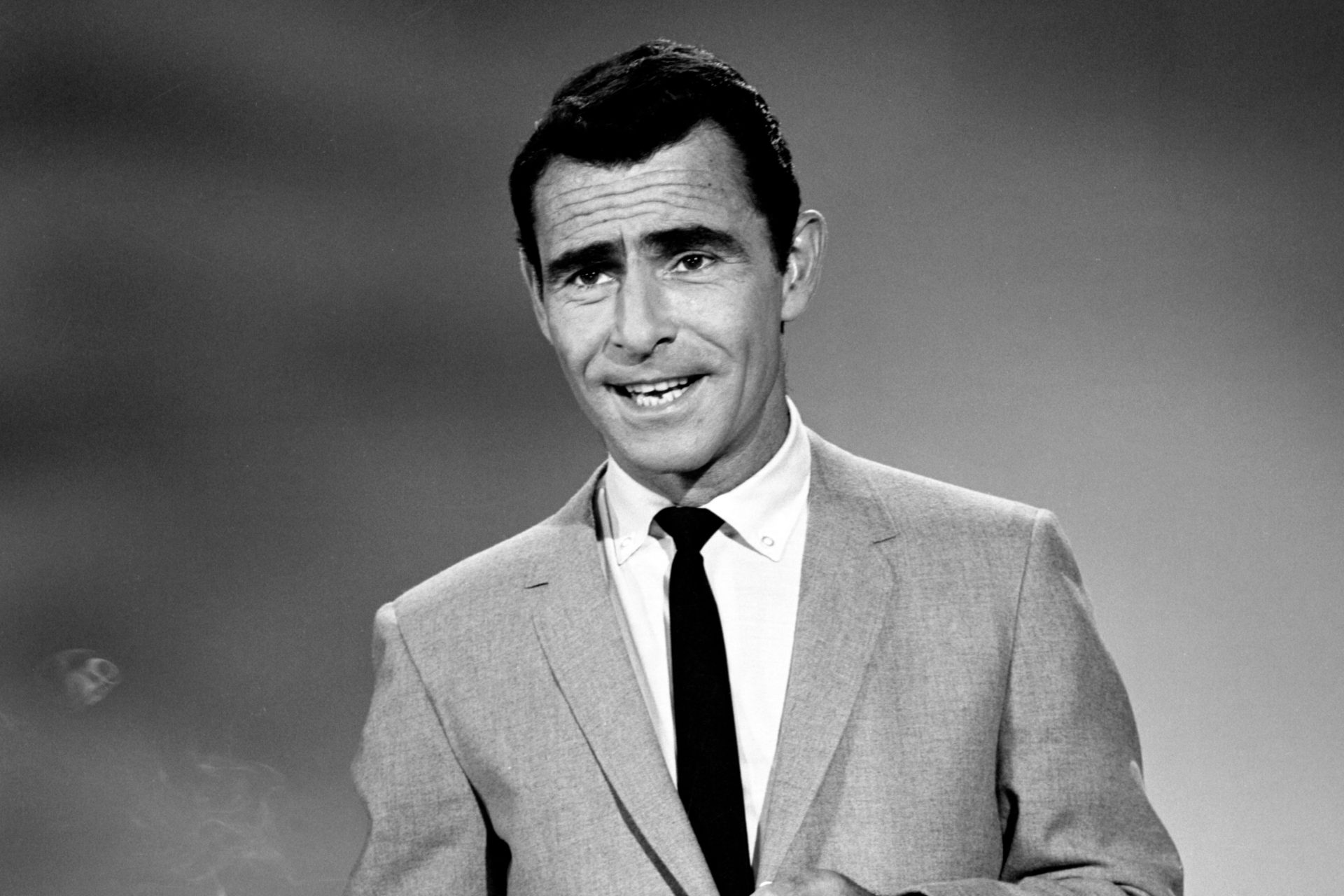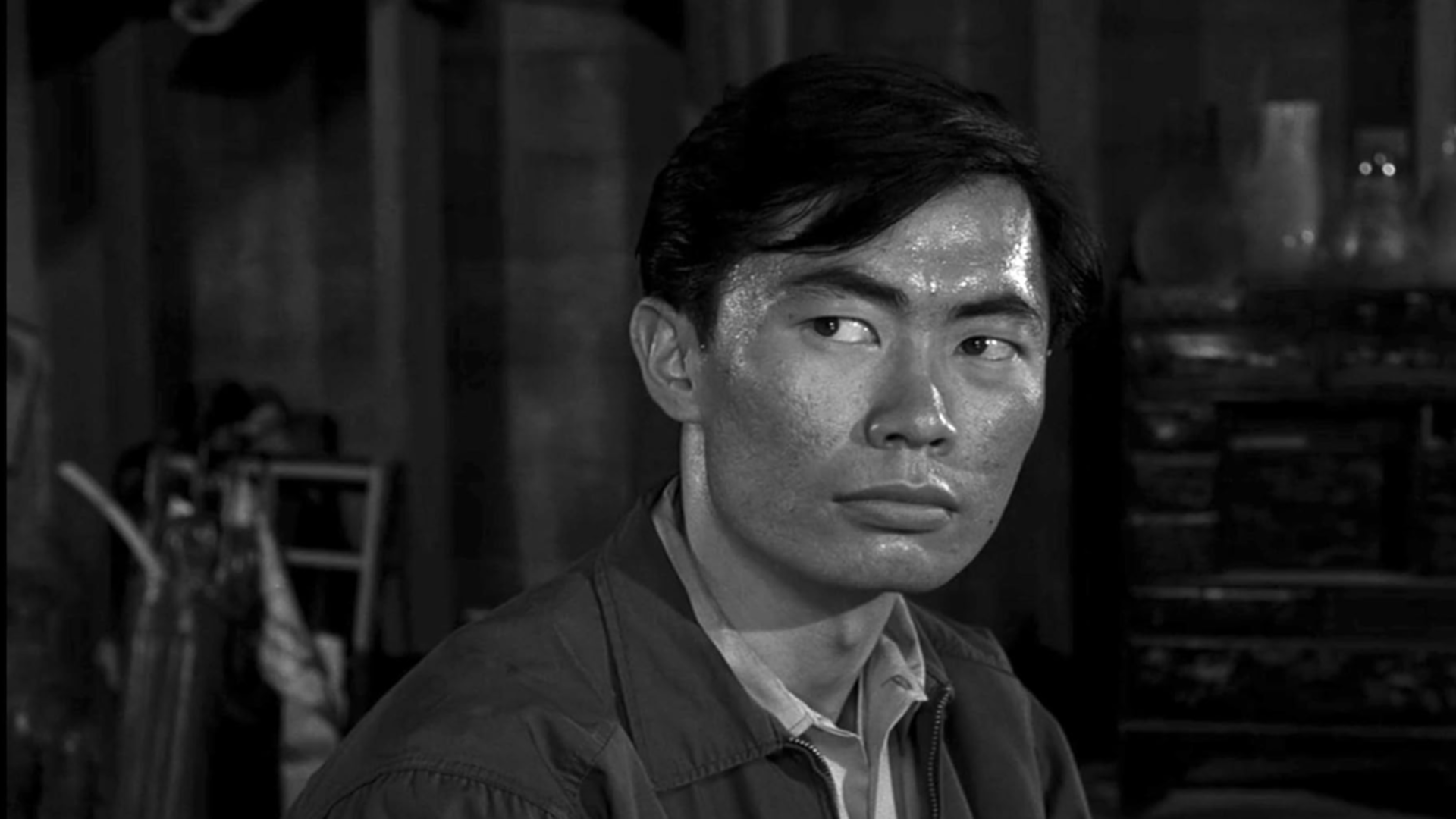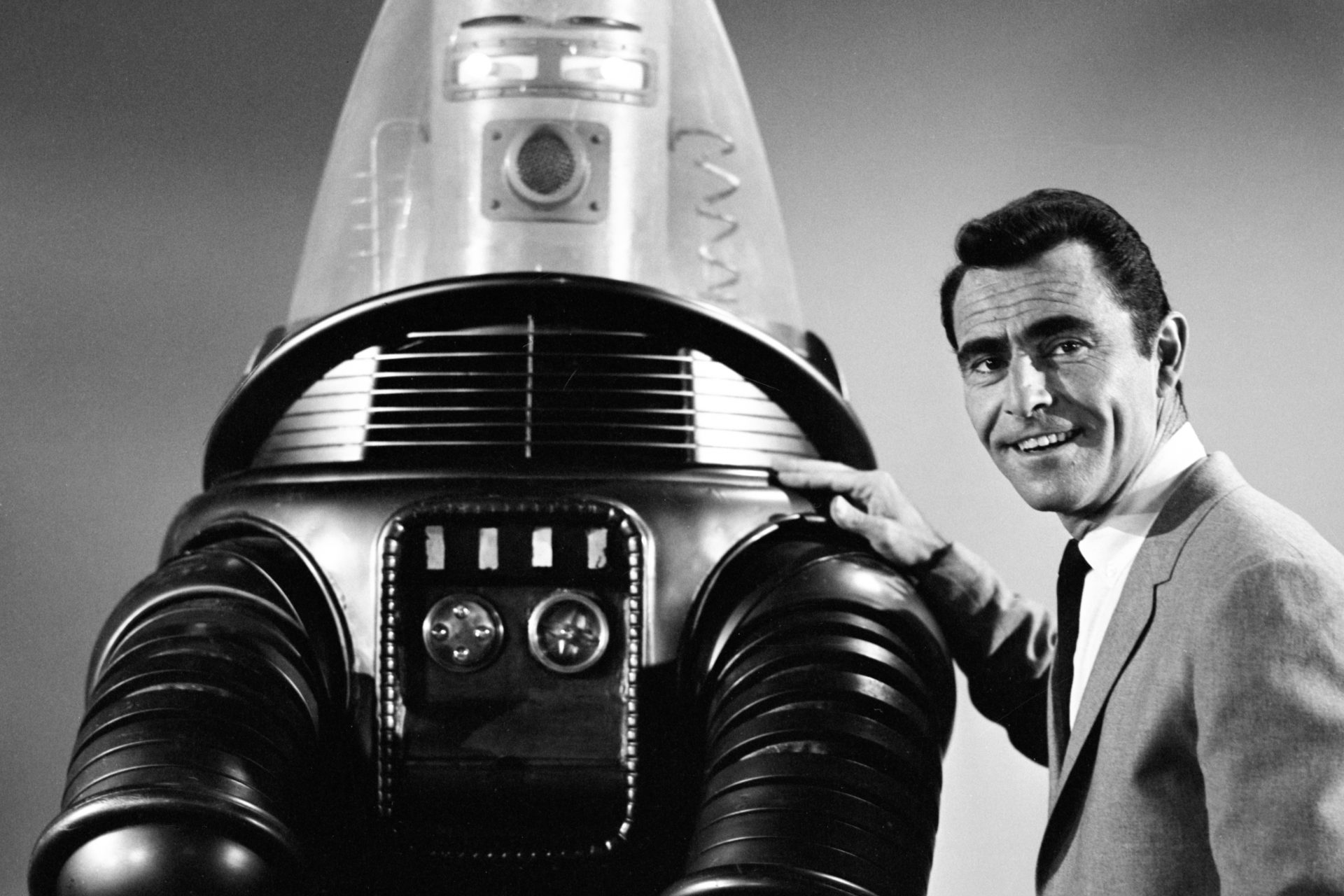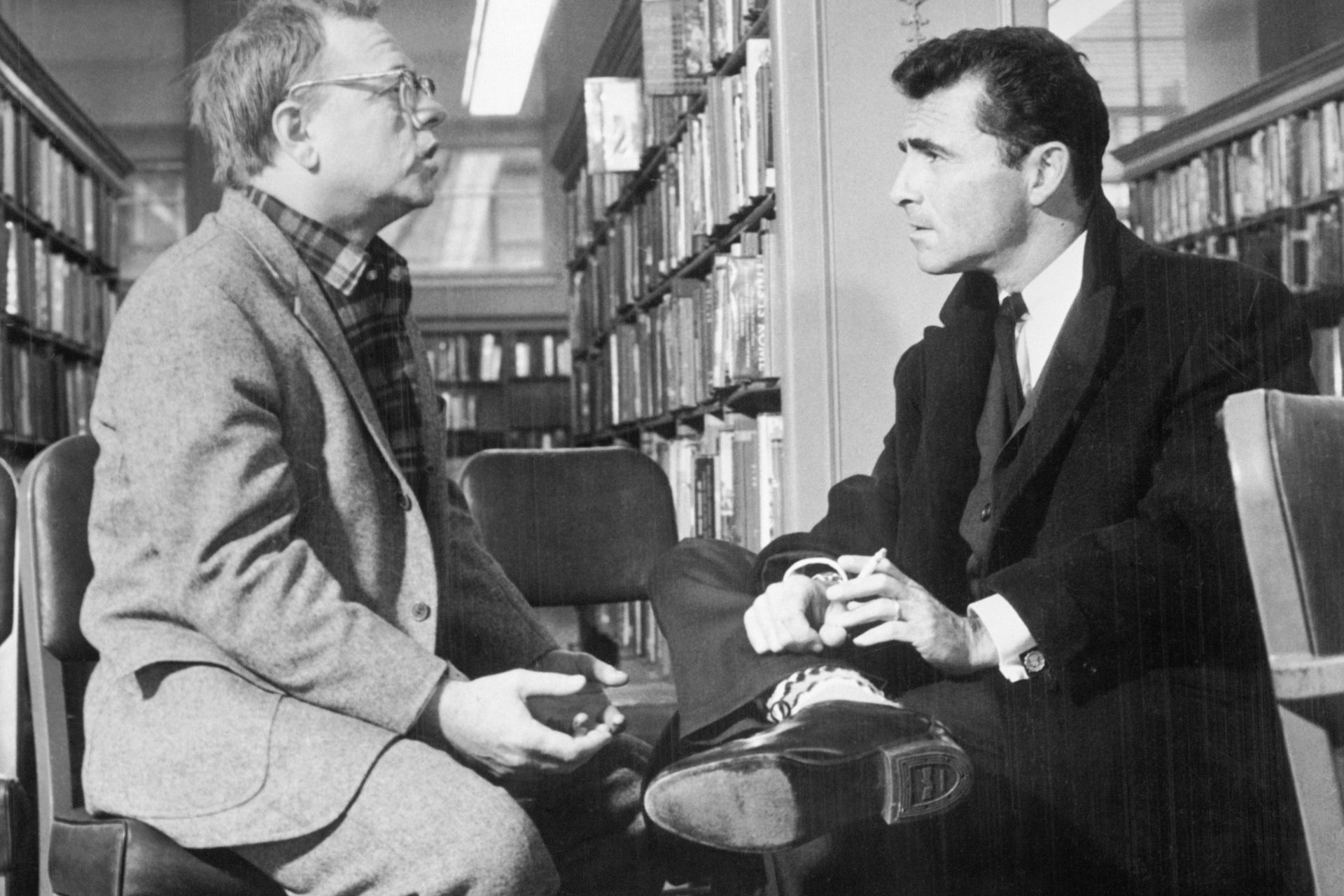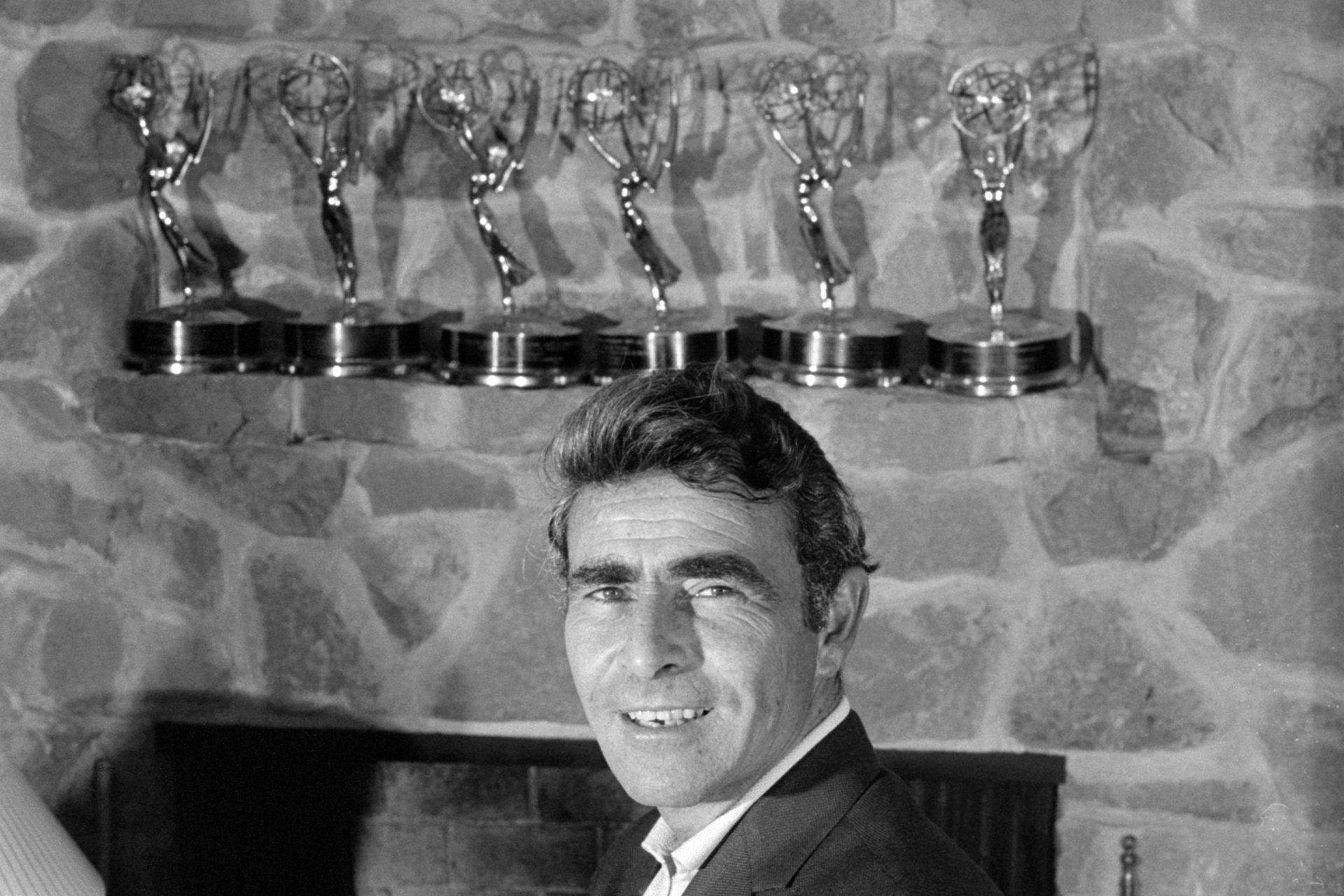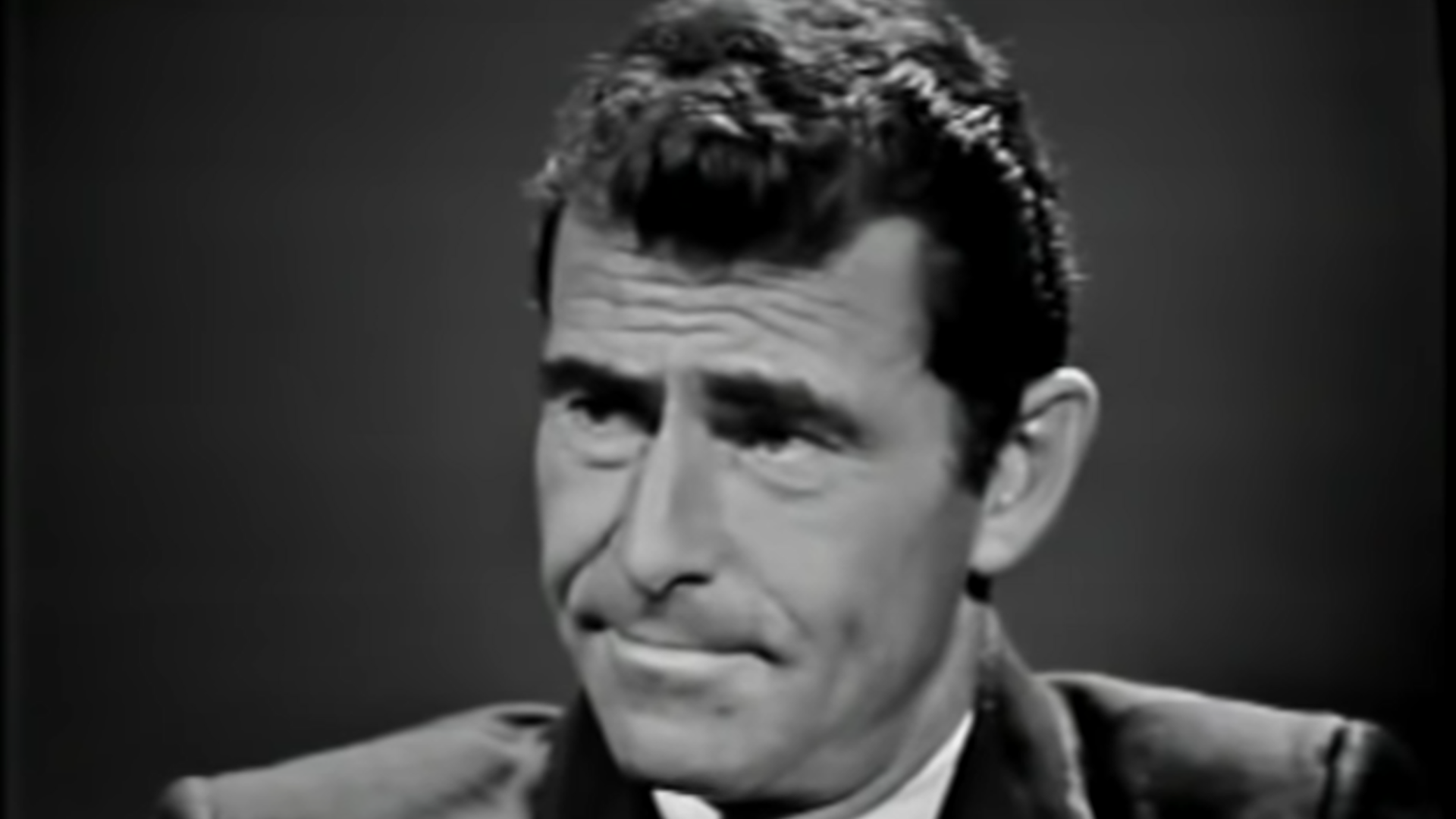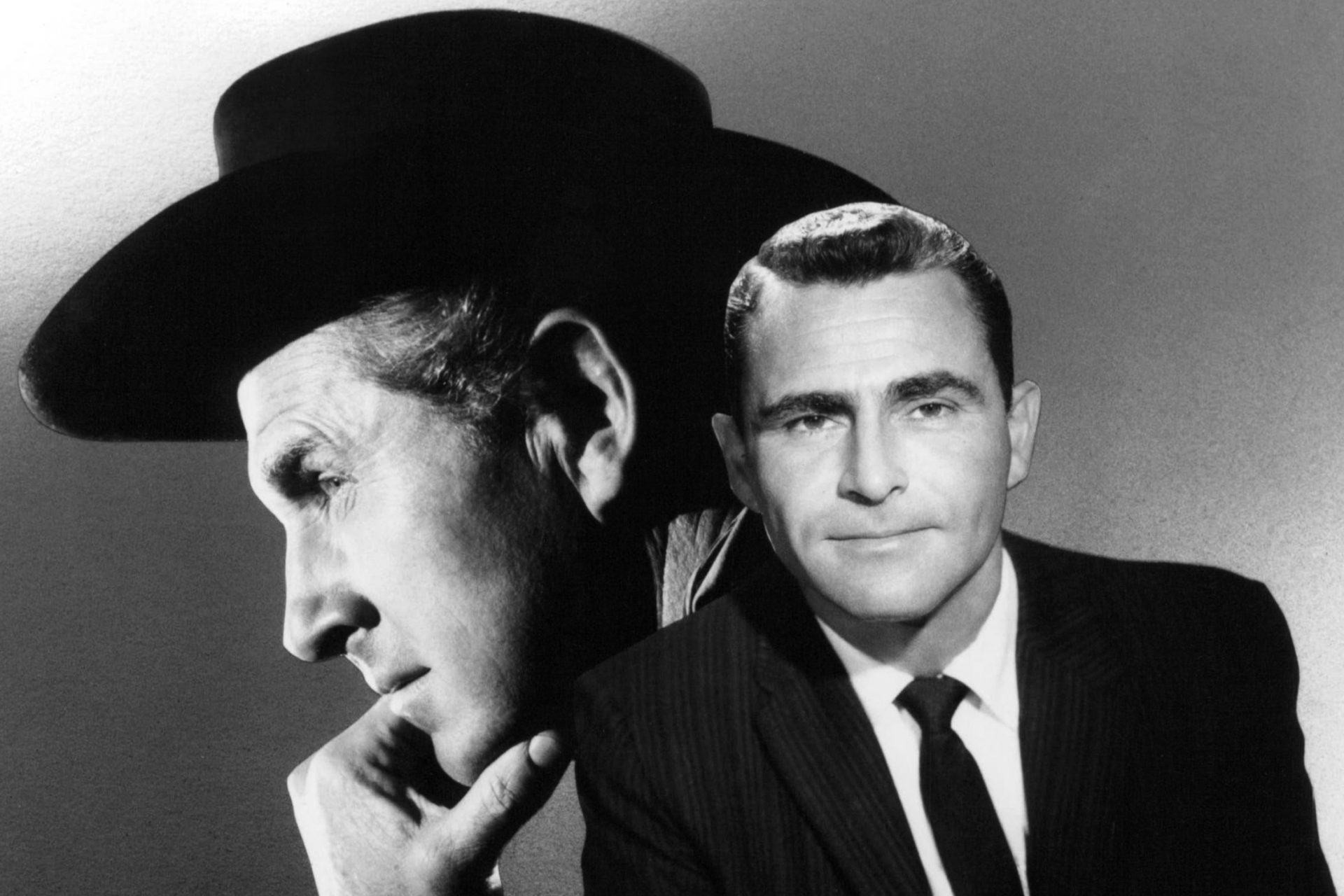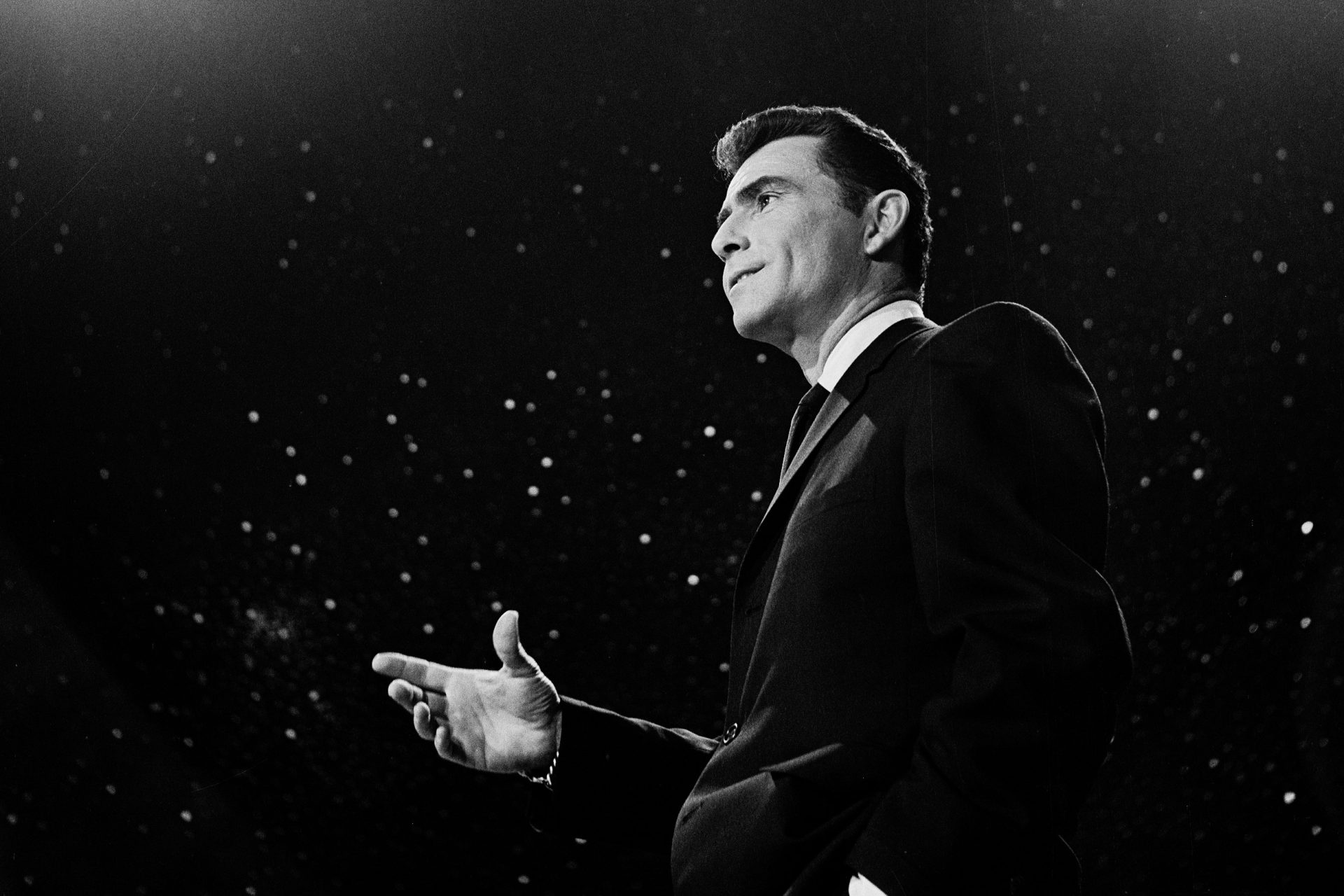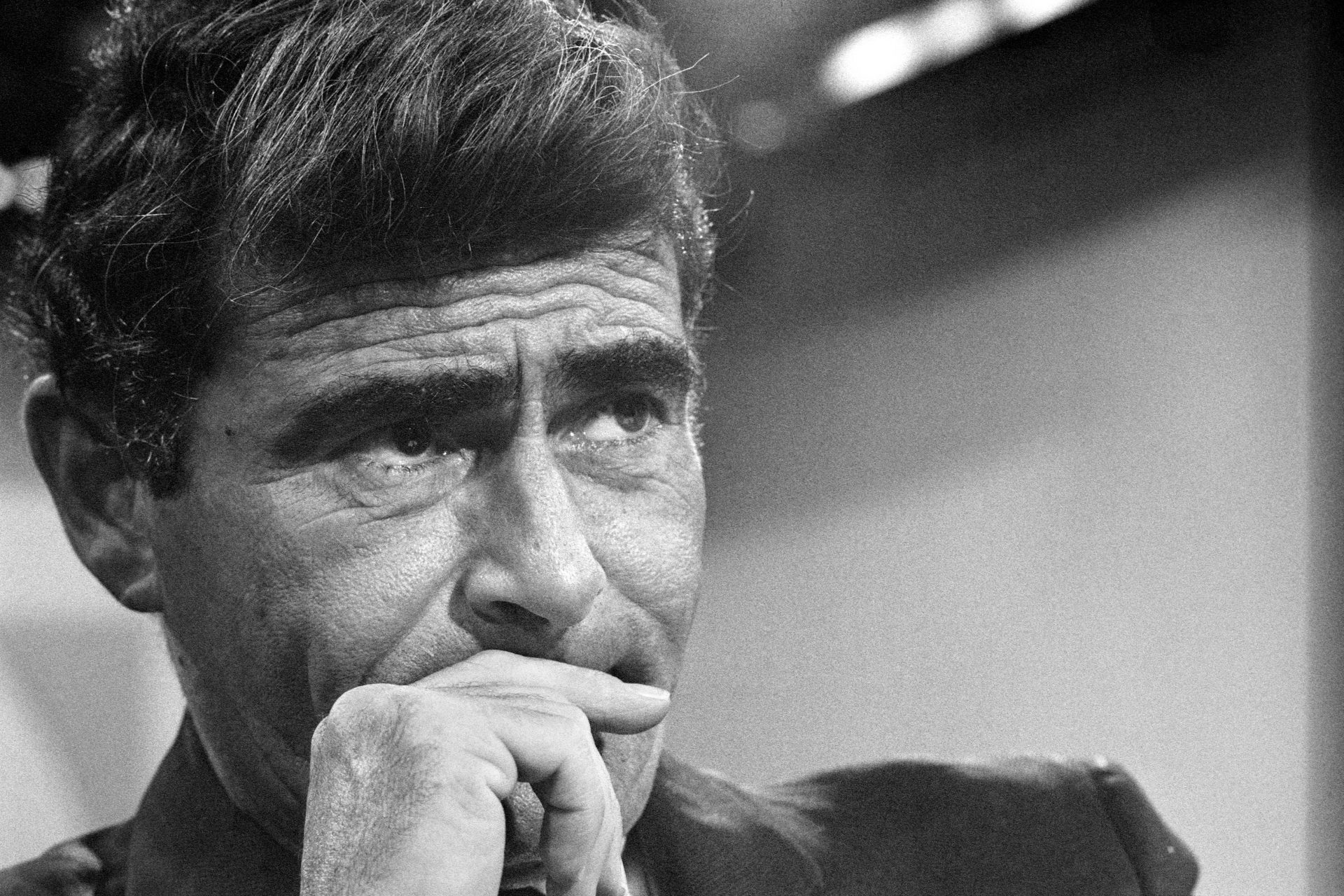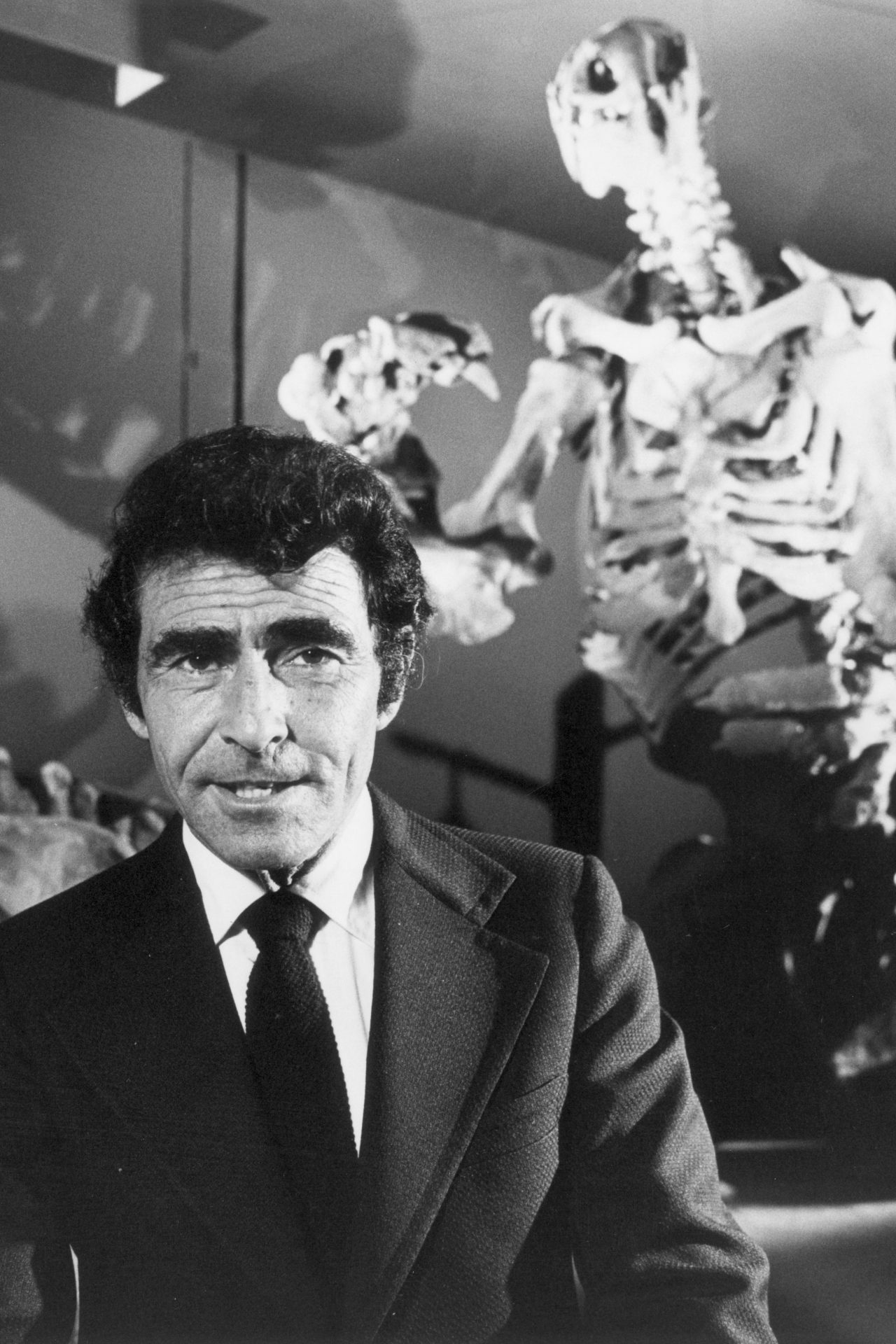Rod Serling: The fascinating man behind ‘The Twilight Zone’
For fans of ‘The Twilight Zone,’ there’s no need to explain the importance of Rod Serling. He revolutionized early TV with one of the best shows the medium has ever hosted. But not even the biggest fans may know just how fascinating the man behind the show was.
Born in Syracuse, New York to a homemaker and an inventor-turned-butcher, Rodman Edward Serline was born on Christmas day 1924. Although he would live just 50 years, his life would be packed with incredible adventures in the real world and his own imagination.
A curious child, Serling entertained himself by acting out dialogue from pulp magazines and his teachers dismissed him as a class clown. But he eventually joined the debate time and started writing for his school’s newspaper, where, he “established a reputation as a social activist,” according to journalist Gordon Sander.
Image: Panorama Annual, yearbook of Binghamton Central High School, Binghamton, New York, 1943 via Wikimedia
After encouraging his fellow students to join the US Army amid WWII, he signed up as well. He trained as a paratrooper for a year and in 1944 he was sent to the Phillippines to fight, which disappointed him because he wanted to fight Hitler. He was on a platoon called “The Death Squad” for its high casualty rate,” and he had very gory experiences, reflected in an episode of his show.
In the Philippines, he was wounded next to three others killed by shrapnel and was sent to New Guinea, but returned to Manila. His last assignment was as part of the occupation force in Japan. The whole experience left him with nightmares and flashbacks. "I was bitter about everything and at loose ends when I got out of the service. I think I turned to writing to get it off my chest,” his daughter recalled him saying in her memoir. He won a Purple Heart.
Image: U.S. Soldiers Landing On Leyte
After being discharged in 1946, he worked at a rehab hospital while he recovered from his wounds and knee injury. He eventually enrolled in Antioch College in Ohio where he earned a Bachelor of Arts Degree and became active in the campus radio station. There, he met his wife, with whom he’d have two daughters.
Image: CBS Television via the Bureau of Industrial Service/ Wikimedia
In 1950, he got his first professional gig as a radio writer in Cincinnati, Ohio. At the same time, he sold scripts to different radio broadcasters for not much money, and he later complained about giving away great ideas for $50 per week. He later said radio was failing: “It had aimed downward, had become cheap and unbelievable, and had willingly settled for second best,” he said, according to a book by Gordon Sander. He moved to TV.
In 1951, when TV was still in its infancy, Serling decided to drop his "dreamless" occupation as a radio staff writer in Cincinnati, where he was writing commercials and even fake testimonial letters. He decided to go out on his own, write for TV, and move to New York.
In 1955, the famous show ‘Kraft Television Theater’ used a script about a power struggle between an old corporate boss and a bright young executive. The New York Times critic Jack Gould called the show "one of the high points in the TV medium's evolution. Other scripts like ‘Requiem for a Heavyweight’ or 'The Comedien' ran on ‘Playhouse 90’ to prais and an Emmy Award.
"If you have the temerity to try to dramatize a theme that involves any particular social controversy, then you’re in deep trouble," he told Mike Wallace in 1959. He added that many TV writers shy away from even trying to write on themes that networks, advertisers, and audiences don’t like. "I think it's ridiculous that drama, which should make a comment, cannot take a stand," he added.
Image: WNTA-TV (New York, NY)/PBS forerunner via Cincinnati World Cinema/Youtube
For instance, he said an episode he wrote for ‘The United States Steel Hour’ about the kidnapping of a Black man in Mississippi was changed from a Black man to a “foreigner” and the location was moved from the South to New England. "It became a lukewarm, emasculated kind of show," he told Mike Wallace. Adding he “went down fighting” but to no avail.
Image: The Twilight Zone, CBC
"In terms of questions of taste, of the art form itself and drama, I’m the judge. Because this is my medium and I understand it," he told Wallace before the show debuted. "The sponsor knows his product, but not mine. When it comes to the commercials, I leave it up to him. When it comes to the story, he leaves it up to me." Though he admitted that one line was changed in the first 18 scripts — a coffee company made him change a line about tea.
Serling famously was able to keep control by insisting that the ‘Twilight Zone’ simply could not be related to social commentary. "Because they deal in the areas of fantasy and imagination, and science fiction, there is no opportunity to cop a plea or chop an axe of anything," he told Wallace, when clearly the shows snuck in some very heavy social messages.
Image: The Twilight Zone, CBC
Episode 151 of the series, which ran on May 1, 1964, was withdrawn from syndication in the United States until 2004. The episode, called 'The Encounter,' was about wartime trauma, racial disharmony, and racism. At the same time, it used some stereotypes about Asians that would later be frowned upon.
Image: The Twilight Zone, CBS
He told Wallace that he only put his name on projects he was proud of. "I could have done probably 40 film series over the past five years, I presume I turned down that many with great guarantees of cash… but I turned them down because I didn’t like them, I did not think they were quality and god knows they were commercial."
Serling also complained about the need to work so much at the expense of other aspects of life in the TV industry. He told Wallace that as the producer and writer of the ‘Twilight Zone’ he was working 12-14 hours per day, 7 days per week. But he said he wasn’t out for the money and was trying to get out of a $250,000 contract over 3 years to spend more time on the show.
Despite its huge cultural impact, his show ran five years from 1959… overcoming being cancelled a whopping three times! Although it had loyal fans, it only had moderate viewership. At the same time, it won three Emmys. In 2023, Variety ranked it as the 14th-best show of all time.
Despite the extremely high quality of ‘Twilight Zone’ he said in an interview with the Library of Congress that studios still weren’t interested because it was an anthology. That’s because advertisers wanted recurring casts where the star could step out of character and sell a Coke. “The networks have forever thought of the audience… of people with IQs in negative figures who cannot maintain a relationship unless thrust into the maelstrom of familiar names week after week,” he said.
Image: Library of Congress/Youtube
In 1965-66, he wrote an unsuccessful western series for CBS called ‘The Loner.’ He was also behind a 1964 made-for-TV movie ‘A Carol for Another Christmas’ and wrote the pilot for ‘Night Gallery’ in 1969, which was more of a horror-focused series. He kept submitting scripts for three seasons but many of his contributions were heavily altered or even rejected.
After his own experience in war, he became an outspoken opponent of the war in Vietnam, also supporting antiwar politicians. He wrote one show for ‘The United States Steel Hour’ that asks the question of whether veterans should be charged with crimes for cooperating with the enemy while under duress.
While also working on some radio programs, he kept his schedule full by teaching and speaking at campuses. He taught at Ithaca College from the late 1960s until 1975. Audio recordings of his lectures can be found as bonuses on some ‘Twilight Zone’ video collections.
Serling was rarely seen without a c i g both on and off screen. He reportedly s m 0 k e d three to four packs a day and was also under significant stress. In May 1975, he had a heart attack. Two weeks later, he had another one and needed open-heart surgery. He had a third heart attack on the operating table and died at age 50.
Image: 1974
Follow Showbizz Daily to see more fascinating entertainment stories in photos

